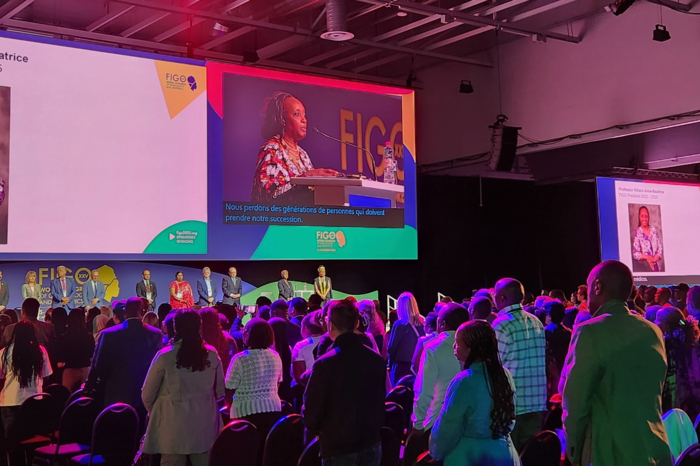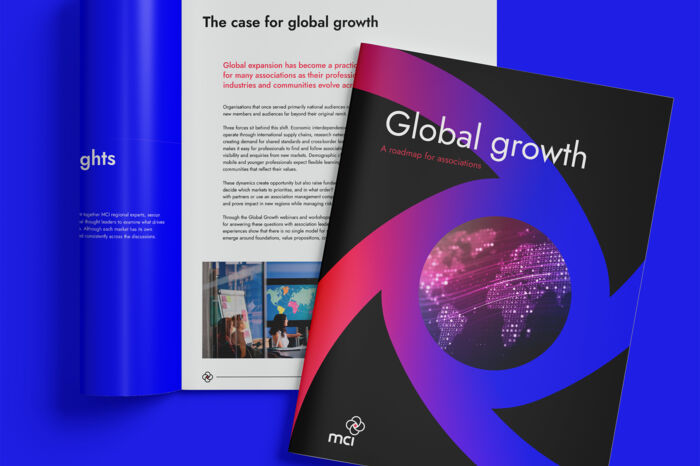
Embracing the digital era
Growing up in a technology-driven world has given Gen Z an intuitive understanding of digital tools and platforms. This positions them as natural innovators in tech-driven roles. Hassan Choughari, Head of Human Capital at Jaroudi Group, writing for Forbes, says that Gen Z is transforming the workplace with their unique skills, values and expectations. Their tech fluency is revolutionising how businesses leverage technology and approach innovation.
For corporate and association events, this translates into the need to incorporate advanced digital tools and platforms to enhance engagement and interactivity. Virtual and hybrid events, augmented reality (AR), and virtual reality (VR) experiences are becoming essential components to meet the expectations of this digitally native generation.
Fostering a culture of inclusion
Gen Z is the most ethnically and racially diverse generation in history. Their exposure to global cultures through digital media has fostered a strong appreciation for diversity and inclusivity. Diversity and inclusivity are non-negotiable, Choughari notes: "These young professionals expect—and insist on—workplaces that mirror these values."
Corporate events and conferences organised by professional associations must prioritise diversity in their programming, speaker line-ups, and community-building initiatives. Creating inclusive environments where all voices are heard and respected will be crucial in attracting and retaining Gen Z participants.
Balancing well-being with work
Gen Z places significant emphasis on mental well-being and a balanced approach to work. They favour adaptable working models like remote work and flexible schedules—trends that have been further normalised by the COVID-19 pandemic.
For corporate events, this could mean offering flexible scheduling, wellness activities, and mental health resources as part of the event experience. Professional associations can enhance their value proposition by providing resources and programmes that support mental and physical well-being, helping members and customers achieve a balanced professional life and offering flexible event schedules with à-la-carte options.

Innovating beyond traditions
“An entrepreneurial ethos runs throughout Gen-Zers,” adds Choughari. “They actively seek and create avenues for innovation within their roles,” fostering substantial internal growth. With a deep-seated desire for continuous learning, Gen-Z also highly values developmental opportunities. This generation gravitate toward organisations that invest in their professional growth through comprehensive training, mentorship programmes, and other educational initiatives.” Companies and associations that offer learning opportunities and invest in their professional development are more likely to retain Gen Z talents, members and customers.
Commitment to sustainability and ethics
Gen Z demonstrates a profound concern for environmental and social issues. They are drawn to organisations that balance profitability, social responsibility, and environmental stewardship. "Sustainability and social responsibility matter," emphasises Choughari. "Organisations that embrace ESG [environmental, social and governance] goals and practices are more attractive to this generation."
Corporate and association events should adopt sustainable practices, from eco-friendly venues to reducing waste and promoting green initiatives. Professional associations should also demonstrate their commitment to social and environmental responsibility through their missions, activities, and advocacy efforts to resonate with their Gen Z community.
Navigating communication styles
Gen Z's casual communication style, influenced by social media, often clashes with the more formal expectations of older generations. "In the quest to be themselves, many young workers communicate casually. It doesn't sit well with all companies that see professionalism differently," notes Rebecca M. Knight. This clash highlights the generational divide in communication styles and the ongoing evolution of workplace norms.
Younger professionals desire authenticity and self-expression, but this can sometimes conflict with traditional corporate expectations. Professional associations and corporations must strike a balance between maintaining professionalism and embracing the casual communication style of Gen Z.

Delivering seamless digital experiences
It has been proved time and again that this demographic expects technology to be integrated seamlessly into their experiences. Back in 2018, Gen Z teens told Business Insider that technology is what sets them apart from millennials. Comments included: “Everything in our generation is immediate. Since we have been raised in an age where texts and messages can be sent in the blink of an eye, we are less patient than other generations because we are used to having instant gratification.”
Events should utilise digital tools for registration, networking and interaction. Successful events will combine physical experiences with digital elements, creating a hybrid environment that caters to Gen Z's preferences.
Integrating AI into event management can significantly enhance the experience for all attendees and particularly for Gen Z. AI tools, like those used by MCI, offer capabilities that can transform how events are planned and executed.
For example, AI-driven social listening tools can gather and analyse data, providing deeper insights into the preferences and behaviours of Gen Z attendees. This data allows event organisers to segment audiences more precisely and tailor marketing strategies to resonate with generational nuances and top brand influences.
The use of event management tools can revolutionise the logistical aspects of planning and execution. Take MCI USA’s AI assistant, Jade. It has multifaceted capabilities – from streamlining attendee registration and housing services to lead scoring and attendee support – that streamline event organisation. And, importantly for Gen Z, who value personalised and immediate interactions, AI tools like Jade deliver the content they need and provide recommendations of sessions to attend tailored specifically to their preferences. AI tools can help create dynamic and interactive experiences that align with Gen Z's digital-first mindset, improve their overall event experience and provide the responsiveness and flexibility they value.

Engaging and retaining Gen Z
Building authentic connections and fostering brand affinity is critical for engaging Gen Z. In their paper, “Generation Z: an exploration of their unique values driving brand affinity”, researchers Maria McKeever, Vicky O'Rourke, and Sarah Diffley identified four key strategies for targeting Gen Z consumers:
Build an authentic brand identity: Authenticity is crucial for Gen Z, who value brands that genuinely reflect their ideologies. Brands should integrate Gen Z's values into their identities rather than retrofitting new values, avoiding the risk of being seen as inauthentic or "woke washing." Marketers should collaborate with young consumers through social media to foster authenticity and trust.
Prioritize user-generated content (UGC): Gen Z trusts content created by peers over brand-generated content. UGC significantly influences brand perception, experience, loyalty, and equity. Encouraging the creation and consumption of UGC helps brands build trust and establish a credible social media presence.
Engage micro-influencers: Micro-influencers, who share interests and lifestyles with Gen Z, are seen as more authentic and relatable than prominent influencers. Leveraging micro-influencers for marketing can enhance brand affinity and positively impact purchase intentions, especially in markets like Ireland and the US where Gen Z heavily relies on influencer recommendations.
Innovate and interact: Innovation and interactivity are vital for capturing Gen Z's attention. This generation prefers interactive content formats like mobile reward videos and sponsored filters. Brands need to creatively integrate Gen Z's culture into their communications, exploring new opportunities to engage this discerning generation through innovative content design.
By focusing on these strategies, businesses and associations can effectively target Gen Z consumers and professionals, fostering trust, loyalty and brand affinity.
Get in touch and discover how MCI can help your organisation adapt to Gen Z’s needs and expectations, and ensure successful engagement and retention.




